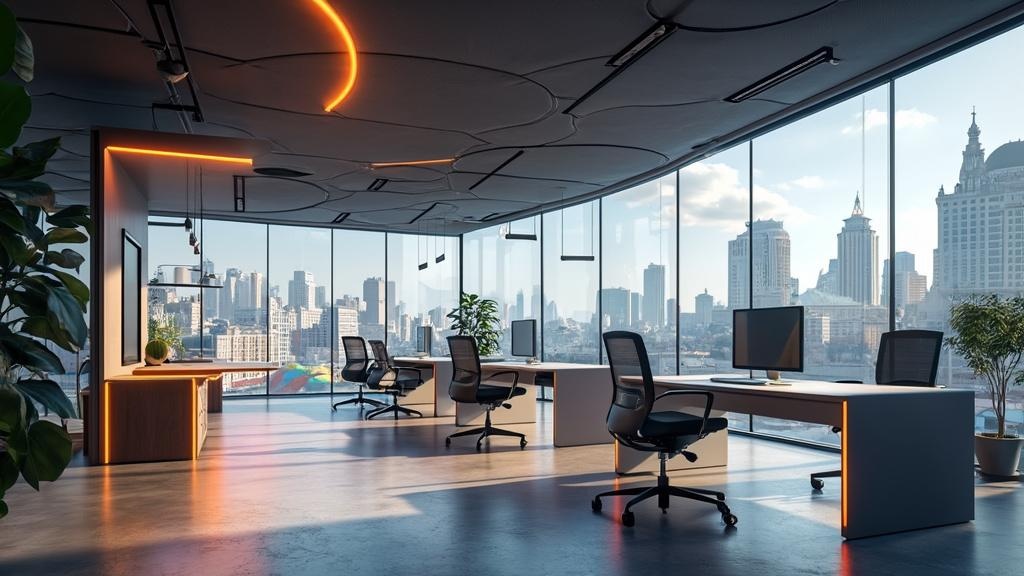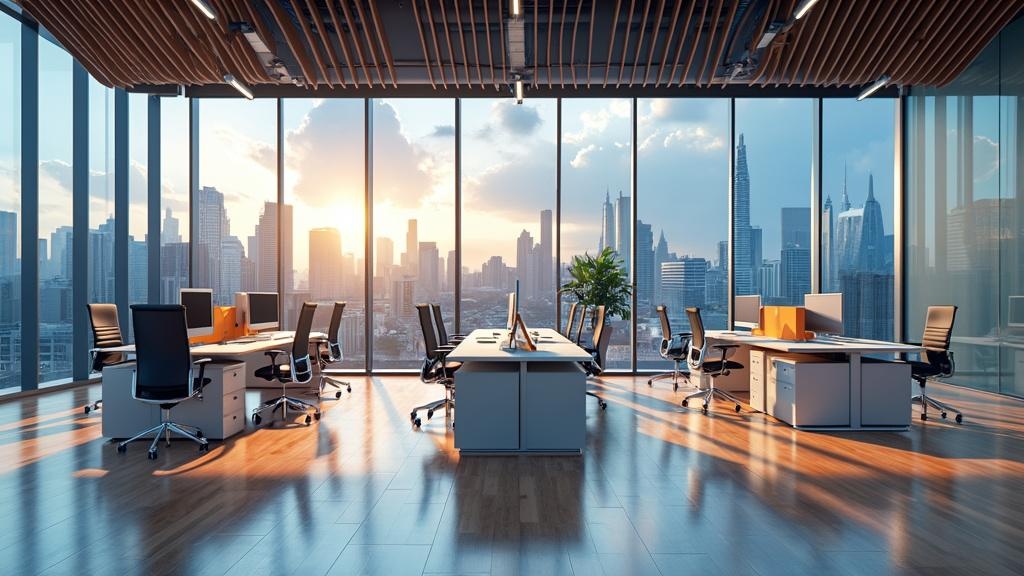The Slovakian furniture market is currently witnessing remarkable transformations driven by the evolving consumer preferences. This transformation highlights a strong focus on quality materials and innovative designs that resonate with contemporary lifestyles.
By embracing emerging trends, both businesses and consumers can engage with options that reflect their desires.
Identifying investment prospects becomes essential for maximizing market opportunities, showcasing the adaptability of local manufacturers poised to meet surging demand.
Click here to learn more about: wholesale slovakia
Current Trends in Slovakian Furniture
A significant influence in today’s furniture landscape comes from European aesthetics, melding traditional craftsmanship with modern design elements.
The rising popularity of multifunctional designs emphasizes maximizing space while ensuring versatility in usage. Notably, sustainable materials such as reclaimed wood and ecofriendly options are gaining traction, catering to an increasing call for environmentally responsible choices.
Local artisans are increasingly integrating cultural motifs into contemporary furniture, highlighting a growing demand for customization options that resonate with national identity and individual expression.

How Ecofriendly Options Shape Choices
Ecofriendly options are shaping consumer choices in remarkable ways. With sustainability now a primary focus, shoppers increasingly seek furniture that resonates with their values.
Studies reveal that ecolabels play a significant role in influencing purchasing decisions, fostering trust in brands that embrace sustainable practices.
To select ecofriendly furniture, begin by exploring materials such as reclaimed wood or bamboo, which help to minimize the carbon footprint tied to production.
Prioritize brands that showcase transparency regarding their supply chains, ensuring that your purchases support ethical sourcing. By integrating these practices into your shopping habits, you can choose furnishings that are not only stylish but also environmentally responsible.
The Rise Of Modular Designs Today
Modular designs have transformed how we approach furnishing our living spaces, particularly within the context of urbanization trends.
The demand for compact, multifunctional furniture is rising, as urban living increasingly necessitates a focus on space-efficient solutions.
Flexibility and functionality are essential characteristics of modular furniture, enabling easy rearrangement and expansion to meet evolving needs.
Consider iconic pieces like modular sofas that seamlessly adapt to various room layouts or customizable shelving units that elevate interior decor.
These innovative designs not only optimize space but also provide smart solutions tailored to the diverse preferences of today’s consumers.
Ecofriendly Options and Modular Designs
- Consumers are 70% more likely to purchase products with ecolabels that indicate sustainable practices.
- Reclaimed wood and bamboo are popular ecofriendly materials that significantly reduce carbon emissions in furniture production.
- Modular furniture sales have increased by 30% in urban areas, reflecting the need for space-efficient living solutions.
- Flexible modular designs can be rearranged in over 10 different configurations, catering to various interior layouts.
Exploring Home Office Solutions For Remote Work
Remote work has created new opportunities for enhancing productivity and comfort in your home office setup. Ergonomic furniture options, designed with your health and well-being in mind, can significantly improve your work experience.
Investing in high-quality ergonomic chairs and desks not only prevents strain but also boosts focus and efficiency.
A well-defined workspace allows you to separate professional tasks from personal distractions, fostering a disciplined work environment.
Tip: To further elevate your remote work experience, consider incorporating technology like noise-canceling headphones or smart lighting.
These enhancements not only improve productivity but also create an enjoyable atmosphere, perfect for today’s flexible work demands.
Understanding Consumer Behavior In Slovakia
Current trends in Slovakia’s furniture market reflect significant shifts in consumer preferences driven by economic factors and demographic changes.
With an increasing focus on Slovakian furniture, today’s consumers are gravitating toward ecofriendly options and sustainable practices in their purchasing decisions. Urbanization has led to a heightened demand for multifunctional designs that cater to smaller living spaces.
This transformation highlights the necessity for retailers to adopt tailored solutions in their marketing strategies to effectively engage ecoconscious buyers.
Insight: By prioritizing local craftsmanship and promoting quality materials, businesses can forge deeper connections with their target audience, thereby enhancing brand visibility and fostering loyalty in a competitive landscape.
Home Office Solutions and Consumer Behavior
- Studies show that ergonomic furniture can reduce discomfort and improve productivity by up to 20%.
- Research indicates that 75% of consumers in Slovakia prefer ecofriendly products, influencing their purchasing decisions.
- Urban living trends have led to a 30% increase in demand for multifunctional furniture in smaller spaces.
- Brands that emphasize local craftsmanship see a 40% increase in customer loyalty compared to those that do not.
The Impact Of Urbanization Trends On Furniture
Urbanization trends significantly reshape furniture choices for modern dwellers. Limited living spaces drive a demand for space-saving furniture that maximizes functionality without sacrificing style.
City living pushes innovative designs like multifunctional options, including sofa beds and foldable tables, making them increasingly popular.
These pieces not only save space but also adapt seamlessly to various lifestyles, catering to the unique tastes of urban residents.
Modern aesthetics are influencing furniture styles, pushing for sleek and contemporary designs that reflect individual expression. This evolution marks a revolutionary shift towards innovative living solutions.
- Compact designs that fit into small apartments
- Furniture that serves multiple purposes
- Aesthetic appeal that complements modern decor
Customization Options For Personalized Spaces
Individual expression in home decor thrives with the rise of customization options, making bespoke furniture solutions a top trend. These tailored solutions empower consumers to invest in pieces that genuinely reflect their unique tastes and lifestyles. To effectively choose customization features, consider the following:
- Assess your space: Understanding dimensions helps avoid mismatches.
- Select quality materials: Emphasize sustainable materials as a conscious choice.
- Incorporate local craftsmanship: This not only enhances quality but also supports artisans.
Customized furniture fosters a deeper connection to home, transforming living spaces into personal sanctuaries filled with comforts that resonate with individual aesthetics. By embracing these customization options, urban dwellers create environments that truly reflect their unique personalities and lifestyle preferences.
Urbanization Trends and Furniture
- Over 55% of the world’s population now lives in urban areas, increasing the need for space-efficient furniture.
- Multifunctional furniture can save up to 30% of space in small apartments.
- Consumers are willing to pay 20% more for sustainable and customizable furniture options.
- Local craftsmanship can enhance furniture quality and support community economies, with 70% of consumers preferring locally made products.
Embracing Local Craftsmanship In Modern Decor
Local craftsmanship is experiencing a remarkable renaissance, captivating those who appreciate the unique essence of handmade items. Handmade pieces not only add character but also tell a story of creativity, inviting emotional connections into your space.
By supporting local artisans, you foster community ties while ensuring superior quality in home decor.
For instance, integrating handcrafted furniture or distinct local art can dramatically transform your environment.
Imagine a room adorned with a stunning handcrafted table; it becomes not only functional but also a focal point of aesthetic appeal that sparks conversations.
This is where the charm of local craftsmanship truly shines, reflecting your personality and commitment to sustainable practices.
The Benefits of Supporting Local Artisans
Choosing to invest in local craftsmanship offers numerous advantages. Notably, it supports the economy by creating jobs and promoting sustainable practices.
By opting for handmade products, you are also contributing to the revival of traditions and techniques that stand the test of time. This aligns with the growing consumer demand for more authentic experiences within the retail landscape.
Craftsmanship revitalization leads to innovative designs that elevate interiors while respecting our environment.
Incorporating Craftsmanship into Your Space
Incorporating artisan craftsmanship into your design can be as simple as selecting a few standout pieces.
From modular designs to unique wall art, these handmade items can seamlessly blend with contemporary styles.
For example, consider a bespoke sofa that utilizes quality materials, offering both comfort and an eco-friendly option.
For those exploring online shopping platforms, many local artisans now showcase their work digitally, making it easier than ever to discover quality items that resonate with your values.
Embrace the journey of personalization as you choose customization options that accentuate both form and function. This commitment not only enhances your living spaces but aligns with the current lifestyle shifts towards ethical sourcing.
By prioritizing local craftsmanship, you invest in the future of unique design while promoting a closer relationship with your community.
Don’t just decorate your space—celebrate local artistry today!
| Benefits of Local Craftsmanship | Impact on Community |
|---|---|
| Supports local economy by creating jobs | Fosters community ties and relationships |
| Promotes sustainable practices | Revives traditional techniques and craftsmanship |
| Offers unique and authentic home decor | Enhances emotional connections within living spaces |


